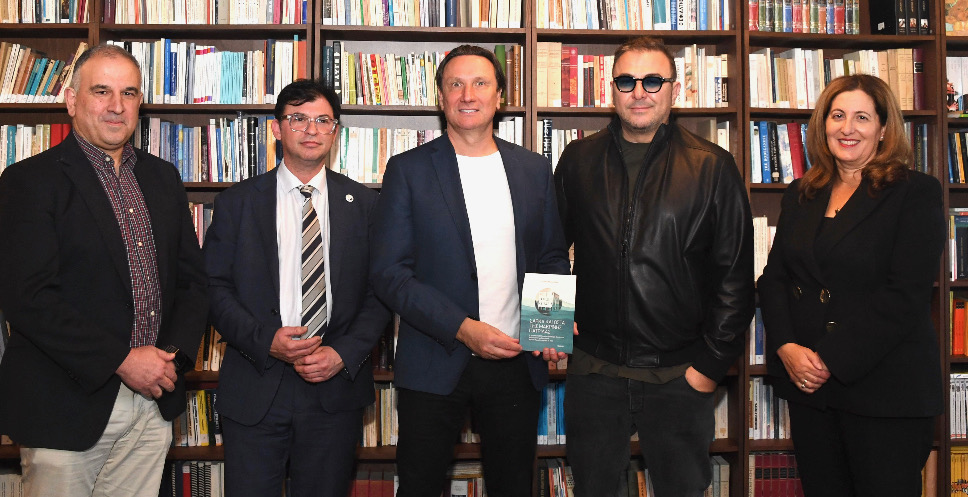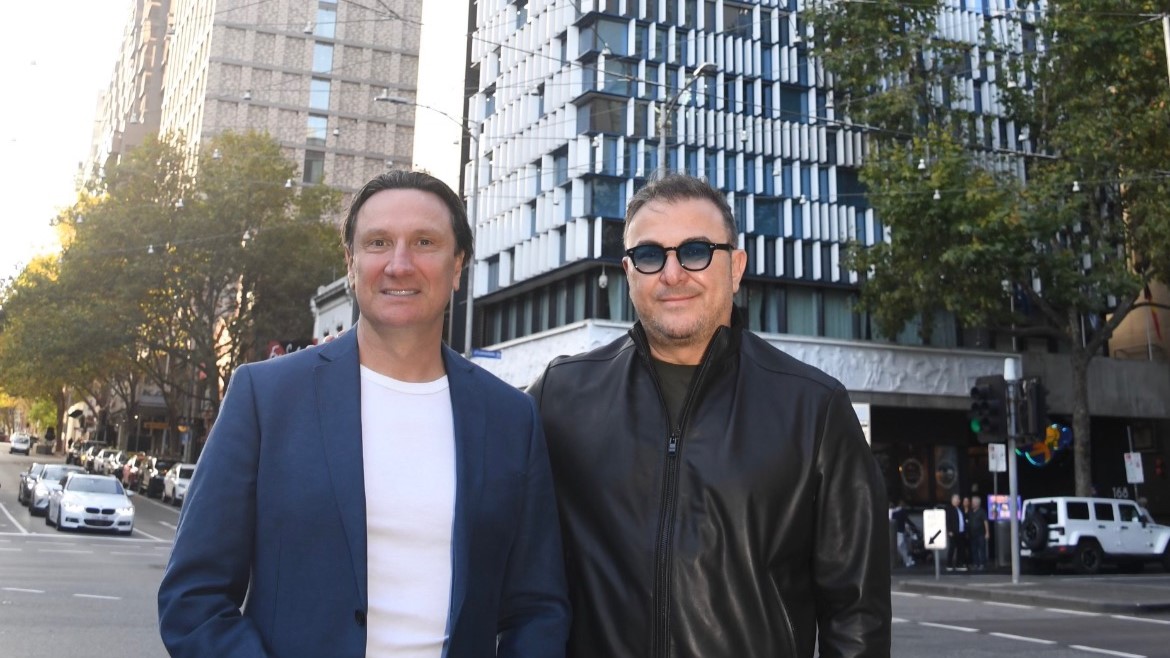On Sunday, April 23, famed Greek popular singer Antonis Remos visited the Greek Centre accompanied by his maestro Vasilis Panagiotou and Greek Australian promoter Vasilis Mavrogiannis.
Mr Remos was welcomed at the Greek Centre by Greek Community of Melbourne (GCM) President Bill Papastergiadis OAM and GCM Board members, Associate Professor Marinis Pirpiris, Helene Hiotis, Leonidas Vlahakis and GCM staff Jorge Menidis and Antonia Tsamis.
The singer, who was on the Melbourne leg of his sold-out Australian tour, was taken through the Greek Centre in Lonsdale Street seeing it in full flight as his visit coincided with Comedy Festival events at the Centre.
The German-born artist spoke glowingly of his experience with diasporic communities and was impressed with the GCM’s education and cultural programs as they were explained by the hosting party.

Mr Remos also spoke on the various influences of music in Greece for him and the importance of the cultural influences music can have on people, particularly the youth. He emphasised the leadership that people need to exhibit as musicians. In that regard, he referred to various initiatives he has proposed to the Greek Ministry of Culture on mentorship programs that he was keen to involve himself in for kids in Greece.
“Wherever I travel around the world, I feel that I come to communities that speak to a real Greek culture and identity thriving in these distant places,” Remοs said.
In response, Mr Papastergiadis said: “Antonis, you bring us joy on stage and we share that extra bond with you as a Greek of the diaspora.”
Mr Papastergiadis presented the visitors with a gift pack that included the GCM’s new history book that was only recently published.

Mr Papastergiadis explained that Me Remos ought not be upset that many of the GCM’s Board could not be at his concert on Saturday night as they had attended the same night the GCM’s theatre group production on the Asia Minor Catastrophe.
“The GCM has a rich cultural program that spans the entire year and involves most aspects of culture from live music, dance, film, lectures, and theatre. The importance of this program is that much of it is produced locally,” Mr Papastergiadis said.
Of particular interest to Mr Remos was the discussion of the Greek Summer Cultural Camp program in Thessaloniki that the GCM started last year and is looking to run again in 2023.
“Forty young people on a hosted cultural excursion through Northern Greece funded initially with the support of the Greek Foreign Ministry,” Mr Papastergiadis described the program.
“With the benefits for the participants spilling well beyond the 10 days of the camp itself. We see energised young people return with a list for Greek content – I am sure some of the 2022 cohort will see your shows whilst you are here because of a newfound enthusiasm in Greek cultural practice.”
Mr Remos was moved by all the GCM hosts had to say, in particular by the breadth of programs and the focus on Asia Minor. For him, the diaspora has a particular relevance as he explained his origins in Dusseldorf and its profound influence on him.
Leaving the Greek Centre, Mr Remos congratulated the hosts and wished them success in the GCM’s future projects. The GCM thanks Vasilis Mavrogiannis for facilitating this visit.

